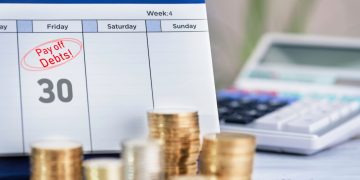Your Complete Guide to Saving on Expenses

Understanding Debt and Its Impact
Debt can be a double-edged sword. If managed well, it can help you achieve significant financial milestones, such as purchasing a home or financing an education. But mismanagement can lead to a financial quagmire with far-reaching consequences. Here, we’ll break down the impact of unmanaged debt and highlight why proactive debt management is the key to financial stability.
The Consequences of Unmanaged Debt
When debt spirals out of control, the repercussions can be severe:
- High Interest Costs: Accrued interest can make paying off debt feel like an uphill battle. Over time, the amount paid in interest can surpass the original principal.
- Late Fees: Missing payments can result in hefty penalties, increasing the overall debt burden and making it even harder to catch up.
- Credit Score Impact: Defaulting on debt or making late payments can adversely affect your credit score, making it difficult to secure loans in the future or result in higher interest rates Source: Credit Karma.
The Importance of Proactive Debt Management
Managing debt effectively is not just about making payments; it’s about steering your financial ship towards stability and prosperity. Here’s why proactive debt management is crucial:
Improving Financial Health
Implementing a debt management plan allows you to regain control over your finances. By tracking your debts, interest rates, and due dates, you can prioritize which debts to pay off first and save money in the long run.
Achieving Long-Term Financial Goals
Effective debt management paves the way for achieving long-term financial goals such as buying a home, retiring comfortably, or starting a business. By reducing debt, you free up resources that can be redirected towards these aspirations.
Reducing Stress
Financial stress can take a toll on both mental and physical well-being. Having a clear, manageable plan for debt repayment can alleviate this stress and foster a healthier mindset towards finances Source: Money Crashers.
Understanding debt and its impact is the first step toward financial stability. With this knowledge, you’re better equipped to tackle your debts strategically and avoid the pitfalls of unmanaged debt. Stay tuned for the next chapter on assessing your financial situation to build a robust debt repayment plan.
Assessing Your Financial Situation
Listing Your Debts
Before you can start managing your debts effectively, you need a clear picture of your current obligations. Begin by listing all your debts, including credit cards, student loans, personal loans, and mortgages. For each debt, note the total amount owed, the associated interest rate, the minimum monthly payment, and the due date. This inventory allows you to see the full scope of your financial commitments and prioritize your repayment plan.
Understanding Your Income and Expenses
Next, you’ll need to analyze your monthly income versus your expenses. List all sources of income, including salary, freelance work, or side hustles. Then, categorize your monthly expenses into two types:
- Fixed Expenses: Costs that remain the same each month, such as rent or mortgage, utility bills, and insurance premiums.
- Variable Expenses: Costs that fluctuate, such as groceries, transportation, and entertainment.
Compare your total expenses to your total income to determine the available funds for debt repayment.
Creating a Debt Repayment Plan
With your debts listed and your cash flow understood, you can develop a realistic repayment plan. Prioritize high-interest debts first, as these cost more over time due to accumulated interest. Consider options like debt consolidation to simplify your repayments and potentially reduce your interest rates. You can also explore negotiating more favorable terms with your creditors, such as lower interest rates or adjusted payment plans.
Citing the importance of these strategies is crucial. According to a detailed guide from Gestão de Dívidas, a comprehensive approach that includes budgeting, negotiating, and regular monitoring can significantly improve your financial stability: Source: Gestão de Dívidas.
Assessing your financial situation accurately forms the foundation for successful debt management. By understanding your debts and organizing your finances, you set yourself on a path towards financial freedom and stability.
Prioritizing Debt Repayment
Rank Debts by Interest Rates
To efficiently tackle debt, begin by listing all your debts alongside their respective interest rates. This approach ensures you focus on paying off debts that cost the most over time. By prioritizing high-interest debts first, you’ll save money on interest in the long run.
Steps to Rank Your Debts
- List all debts, including credit cards, personal loans, and student loans.
- Note the interest rates and minimum monthly payments for each debt.
- Sort the debts from highest to lowest interest rate.
This simple strategy can expedite your journey to financial freedom by minimizing the total amount of interest paid.
Consider Debt Consolidation
Debt consolidation involves merging multiple debts into one loan with a lower interest rate. This method simplifies your payments and potentially lowers your monthly payment.
Benefits of Debt Consolidation
- Simplified monthly payments.
- Potentially lower interest rates.
- Improved credit score over time due to on-time payments.
Common methods for debt consolidation include low-interest personal loans and balance transfer cards. Consult with financial institutions to find the most favorable terms for your situation.
Additional Resources
Use online tools and resources like NerdWallet’s Debt Consolidation Loans Guide to explore available options and make informed decisions. By prioritizing high-interest debts and considering consolidation, you set a clear and manageable path toward financial stability. Remember, this journey requires vigilance and consistent effort, but the reward of financial freedom is well worth it.
Negotiating with Creditors
Communicate Financial Situation
Negotiating with creditors can be daunting, but clear and honest communication is crucial. Start by explaining your financial situation, which includes sharing your income, expenses, and existing debts. When creditors understand your position, they are more likely to offer assistance. For many companies, receiving some payment is better than none. Hence, they might be willing to accommodate more manageable payment arrangements to ensure they receive regular payments.
Request Favorable Terms
Ask for lower interest rates or more extended payment plans. Reduced interest rates can make a significant difference in the total amount you owe. Another option is to negotiate a new payment schedule that aligns better with your current financial capabilities. Be prepared to provide documentation supporting your claims, such as pay stubs, medical bills, or other financial statements.
Negotiation is a two-way street; express your willingness to commit to the newly agreed terms to demonstrate your seriousness and reliability.
Explore Debt Settlement Options
If your debts are overwhelming, and negotiations for better terms are not fruitful, consider debt settlement. Debt settlement involves negotiating with creditors to accept a lower total payment than what is owed, typically in a lump sum. While this can damage your credit score in the short term, it may be a viable option for those heavily burdened by debt. Ensure to get all agreements in writing and understand the terms thoroughly before proceeding.
For further insights on the impact of debt and effective negotiation strategies, refer to the comprehensive guide on debt management provided by Source: Gestão de Dívidas.
Staying on Track
Once you’ve negotiated more favorable terms or settled debts, it’s crucial to adhere to the new payment schedule diligently. Missing payments can reverse the progress made and damage your credit further. Set up payment reminders or automatic transfers to avoid missing any payments. Regularly review your budget and adjust as necessary to remain on track. Continuing diligent financial management after successfully negotiating with creditors is key to maintaining financial stability.
Remember, creditors are often willing to negotiate if approached honestly and proactively. Knowing your rights and being prepared with all the necessary information helps facilitate smoother negotiations and can lead to more favorable outcomes. For a broader view of managing and prioritizing your debts, consider exploring resources such as Source: NerdWallet.
Cutting Expenses and Finding Extra Income
Identify Unnecessary Expenses
Taking a close look at your spending can reveal areas where you can trim costs. Begin by categorizing your expenses into fixed and variable. Fixed expenses, such as rent and utilities, are typically non-negotiable, but there’s often wiggle room for variable expenses like dining out, entertainment, and subscriptions. Consider these steps to streamline your spending:
- Audit your subscriptions: Cancel those you rarely use.
- Cut dining out: Prepare meals at home.
- Opt for budget-friendly entertainment: Use free or low-cost options.
Utilize budgeting apps like YNAB to meticulously track spending and stay on course.
Explore Side Hustles or Part-Time Work
Boosting income can make a significant dent in your debt. Look for opportunities that suit your skills and lifestyle. Consider the following avenues:
- Freelancing: Websites like Upwork connect you with clients.
- Gig economy jobs: Drive for ride-sharing apps or deliver food.
- Online sales: Sell items you no longer need on platforms like eBay or Facebook Marketplace.
These additional earnings can be directly allocated to debt repayment, accelerating your journey to financial stability.
Sources:
- Source: Credit Karma
- Source: Money Crashers
Staying on Track and Monitoring Progress
Set Up Payment Reminders
To stay ahead of your debt repayment schedule, proactively set up reminders or automatic transfers. These can be easily managed through your bank’s online portal or through dedicated financial apps. Automating your payments helps to ensure that you never miss a due date, thereby avoiding late fees and additional interest charges.
Regularly Review and Adjust Your Budget
As you make progress on your debt repayment journey, it’s crucial to regularly review and adjust your budget to reflect your current financial situation. Here’s how to maintain an adaptable budgeting system:
Monthly Financial Check-Ins
Set aside time each month to evaluate your spending, income, and overall financial health. Track your expenses closely and compare them to your budget to identify any deviations. Adjust your allocations if there have been changes in your income or essential expenses.
For example, if you receive a bonus or any extra income, consider directing a portion of it towards debt repayment. This can accelerate your progress toward financial freedom.
Redirect Funds as Debts are Paid Off
When you pay off a particular debt, don’t let those freed-up funds get lost in your general finances. Instead, strategically redirect them toward other outstanding debts or increase your savings contributions. This method is often referred to as the “debt avalanche” or the “snowball” method and can significantly speed up your debt repayment journey.
Leverage Financial Tools
Modern technology offers an array of tools to help you stay on track. Budgeting apps like YNAB, Mint, or PocketGuard provide real-time insights and help you manage your finances more effectively.
Debt payoff calculators can be particularly useful in visualizing the impact of extra payments and staying motivated as you see the immediate benefits of your efforts.
Monitor Your Credit Score
Lastly, regularly review your credit report to ensure all your efforts are reflected correctly. Sites like AnnualCreditReport.com offer free annual credit reports from the major bureaus. Monitoring your credit allows you to catch errors that could negatively impact your score and to see the positive results of your hard work. By integrating these





